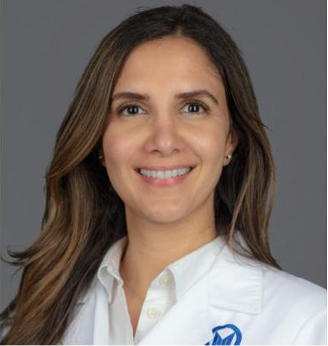Baseline Assessment
Medical Oncology Neuroendocrine Tumor Program - Department of Gastrointestinal Oncology,
Moffitt Cancer Center
Tampa, FL
 Dr. Haider is an Associate Member in the Department of Gastrointestinal Oncology at Moffitt Cancer Center and an Associate Professor of Oncologic Sciences at University of South Florida. Dr. Haider’s clinical practice is focused on neuroendocrine tumor (NET) oncology. As a member of the Endocrine Program Multidisciplinary team, she also treats paraganglioma and pheochromocytoma. In parallel, Dr. Haider leads and participates in clinical research focused on the systemic therapies of these tumors. As a Clinical Educator, she participates in the education of medical students, residents, and fellows as well as community outreach. She is an active member of the North American Neuroendocrine Tumor Society (NANETS), where she serves on the Continuing Education Committee and has been an invited moderator and speaker at NANETS national and regional seminars.
Dr. Haider is an Associate Member in the Department of Gastrointestinal Oncology at Moffitt Cancer Center and an Associate Professor of Oncologic Sciences at University of South Florida. Dr. Haider’s clinical practice is focused on neuroendocrine tumor (NET) oncology. As a member of the Endocrine Program Multidisciplinary team, she also treats paraganglioma and pheochromocytoma. In parallel, Dr. Haider leads and participates in clinical research focused on the systemic therapies of these tumors. As a Clinical Educator, she participates in the education of medical students, residents, and fellows as well as community outreach. She is an active member of the North American Neuroendocrine Tumor Society (NANETS), where she serves on the Continuing Education Committee and has been an invited moderator and speaker at NANETS national and regional seminars.
Department of Gastrointestinal Medical Oncology
Division of Cancer Medicine
MD Anderson Cancer Center
Houston, Texas
 Dr. Chandrikha Chandrasekharan is a Clinical Associate Professor in the Department of Gastrointestinal Medical Oncology at The University of Texas MD Anderson Cancer Center. Her clinical practice focuses on neuroendocrine tumors and pancreatic cancer, and she is dual board-certified in Medical Oncology and Palliative Medicine. Before joining MD Anderson in 2025, Dr. Chandrasekharan served for eight years on faculty at the University of Iowa, where she co-led the gastrointestinal oncology program and helped lead the Clinical Core for the Neuroendocrine Tumor SPORE (2021–2022). An active member of the North American Neuroendocrine Tumor Society (NANETS), she regularly contributes to education and multidisciplinary care initiatives for the NET community.
Dr. Chandrikha Chandrasekharan is a Clinical Associate Professor in the Department of Gastrointestinal Medical Oncology at The University of Texas MD Anderson Cancer Center. Her clinical practice focuses on neuroendocrine tumors and pancreatic cancer, and she is dual board-certified in Medical Oncology and Palliative Medicine. Before joining MD Anderson in 2025, Dr. Chandrasekharan served for eight years on faculty at the University of Iowa, where she co-led the gastrointestinal oncology program and helped lead the Clinical Core for the Neuroendocrine Tumor SPORE (2021–2022). An active member of the North American Neuroendocrine Tumor Society (NANETS), she regularly contributes to education and multidisciplinary care initiatives for the NET community.
